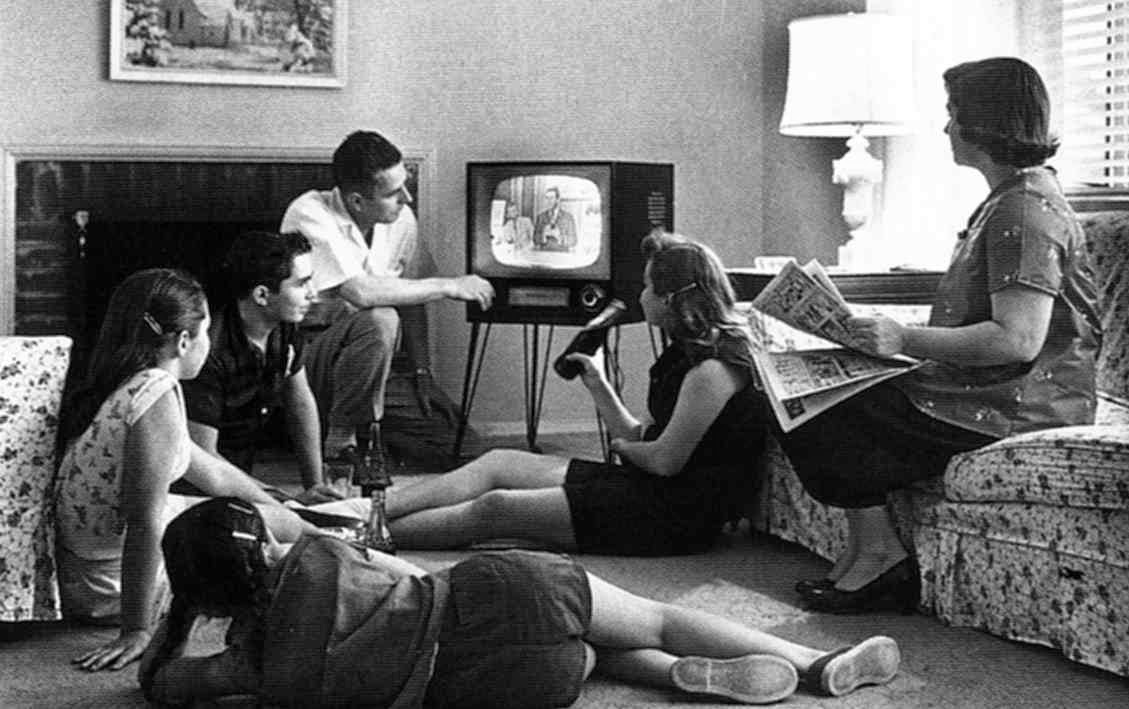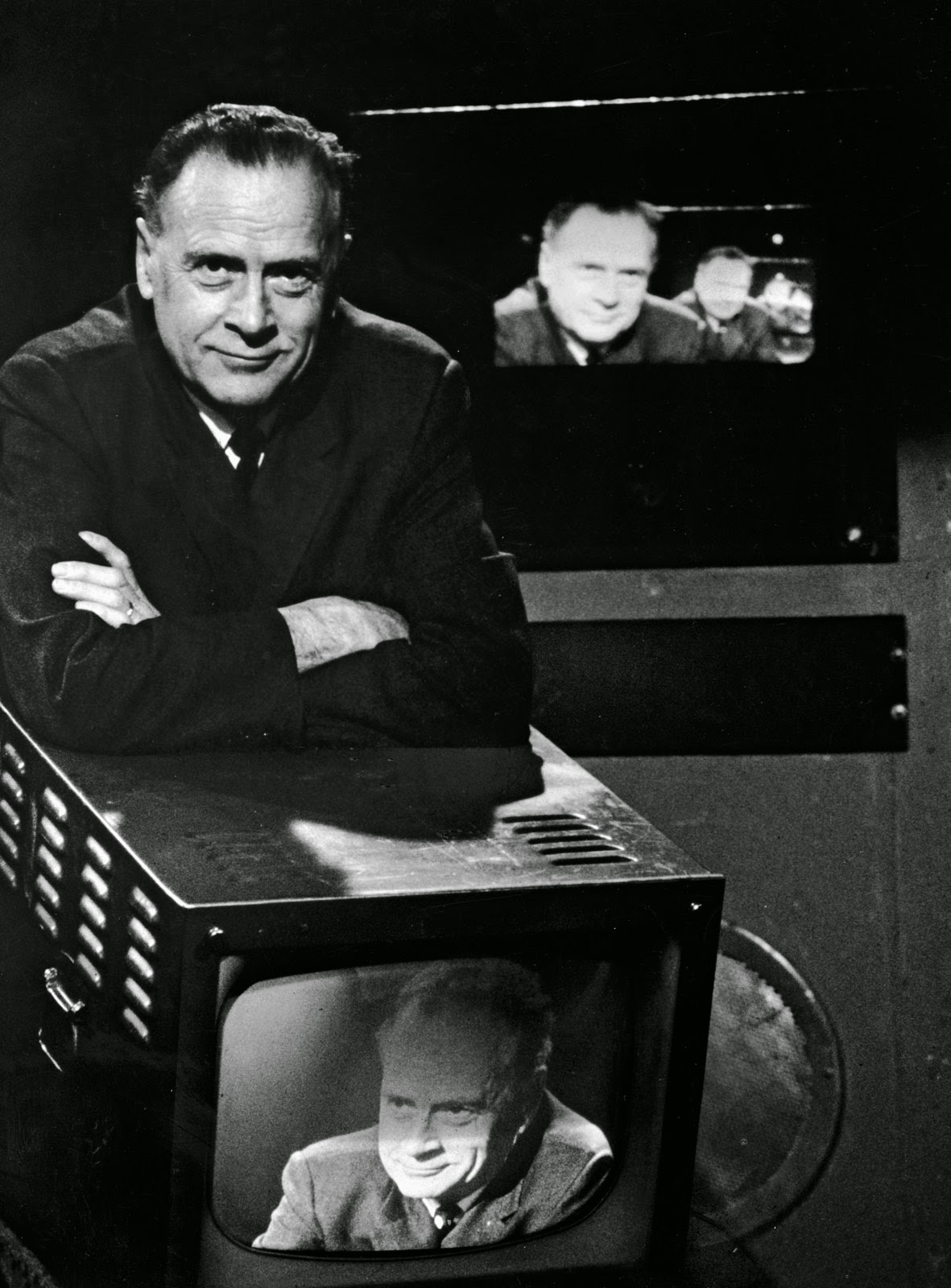Devilish Invention?
My great- grandfather had once told
me a story, a story that I will never forget that idealizes the invention of TV
the story is as follows:
 |
| Bursa-1913 |
My great-grandfather had told me
that he was the little boy in the story. I always asked him how his aunt knew,
he never really acknowledged that part, he always told me “she just seemed to
know what the future was going to bring”.
With this story in mind I want all of us to think about what the
future has brought us in terms of television. Lets take a mental flashback to
our childhood years and remember the houses we visited. What was in the
centerpiece of each living room? Are you thinking what I’m thinking? Yes it
definitely was television. We are growing up in such a generation where
"TV has become a piece of furniture as commonplace as the dinner table and
far more worshipped". Isn't it unnatural for
such an invention, which was thought to not have any buyers when it was first invented, has come
to have such a sacred place in our homes. But although I am talking about
our childhood memories it does not stop there in history. Today, now more than
ever, we are devoting our time to TV. When we take a look at how
older generations envisioned the high-tech living room of the future, it seems
as though we are not far from such a crazy insight of the future... With our
walls being filled with screens and our lives being ultimately controlled by
technology, we are at a point where it is almost impossible not to engage with the virtual
world. It seems as if the only way families communicate when they sit in their living room together is during commercial breaks and also to ask where the remote possibly is...
The Box Just Got Bigger… and Curvier???
Wouldn’t it
be smart to refurbish something that 96.7% of American households have and
spend an average of 5 hours on every single day... You would wouldn’t you?
Because Samsung did just that by introducing their 105-inch UHD curved TV. As consumers we seem to like the biggest, the
brightest, and the newest invention. With this TV we have the option to use it
like a flat screen TV or with a click of a button we can arrange the curvature
of the television, adjusting the screen to be able to watch it in every angle. With it’s gigantic size, sleek design,
custom stand, and “crazy bendiness” it is told to hit the market this year! It
is amazing isn’t it? Or is it? I think my great-grandfather’s aunt was right, we
do have much to fear!
Beginning with the first ancestor of television, the Octagon made by General Electric in 1928, displayed images on its three-inch screen. This was a sort of invention only the wealthy could afford to have. Later it was pampered and transfigured, developing into a square box shape with the 1936 Cossor Television. While it was being advertised in a brochure: “Radio—its thrills, its interests, increased one hundred fold by Television . . . Radio is blind no longer. The most exciting running commentary is made immeasurably more thrilling when you can SEE too!" It was revolutionary to be able to not let your own imagination wander but allow a screen to do it for you. The TV was later renovated to being round, it grew legs at one point, and then it hit the 21st century…hard… it grew almost instantly going from Plasma, to LCD, to LED, and then to OLED, it grew bigger in size, it grew brighter in content, it grew smarter than your average box, now in 2015 its ready to curve too? Being 105-inch in size, as compared to the first 3-inch television, much has changed along the way. With this new technology, people are in doubt as to where to actually put the TV, maybe take out that dinner table then it might actually fit…
Beginning with the first ancestor of television, the Octagon made by General Electric in 1928, displayed images on its three-inch screen. This was a sort of invention only the wealthy could afford to have. Later it was pampered and transfigured, developing into a square box shape with the 1936 Cossor Television. While it was being advertised in a brochure: “Radio—its thrills, its interests, increased one hundred fold by Television . . . Radio is blind no longer. The most exciting running commentary is made immeasurably more thrilling when you can SEE too!" It was revolutionary to be able to not let your own imagination wander but allow a screen to do it for you. The TV was later renovated to being round, it grew legs at one point, and then it hit the 21st century…hard… it grew almost instantly going from Plasma, to LCD, to LED, and then to OLED, it grew bigger in size, it grew brighter in content, it grew smarter than your average box, now in 2015 its ready to curve too? Being 105-inch in size, as compared to the first 3-inch television, much has changed along the way. With this new technology, people are in doubt as to where to actually put the TV, maybe take out that dinner table then it might actually fit…
So... Now What?
Although first introduced in January of last year, Curved UHD TV, has yet to come out and appear in the market. Depending on the price I believe it will either be a big seller among the array of TV sets that are coming out, or not have that many buyers if it turns out to be very expensive. While it was presented at the Consumer Electronic Show, it's estimated price was, $120,000, which is a price that will take us back to how it was in 1928 all the way up to the end of the second world war: when only the wealthy could afford such a “fancy toy”. While we are in the midst of comparing today's technology to older ones, it is important to point out that 10 years after the end of WWII, nearly two-thirds of Americans owned a television. The number of TV sets that were in use in the U.S. rose from 6,000 in 1946 to more than 12 million by only 1951. It is insanely amazing for such an invention to find its way in so many households in a nearly a decade. In accordance with absurdity, we might find it ridiculous that there are people waiting for such a high-tech expensive curving HD TV. Like a fly that approaches the brightest light it can find, consumers of this era and like that of the older era, will eventually stick to it the television's fascinating beauty. But again like a fly that is attracted by a bright light, but in the end is stuck to it, I believe that those who buy this technology will be just like that fly: stuck to it’s beauty letting life pass them by.
Through the past century so much has changed in terms of our
priorities, while in 1913 something like this would have been unimaginable in
the minds of many we are in 2015 and every year we are enhancing the product
that we have devoted so much of our lives to. Although the device essentially stayed the same, the way we use it is changing throughout the years. As compared to when it was first invented, with only five major channels being available to the average time- consumer on television, the ideology of TV has evolved. With the advent of such mediums like Netflix, Amazon, and Hulu watching TV shows, movies, documentaries, and everything of your choice on demand has made it to the point where it has isolated people even more. When there were only five channels everyone only had access to the same TV shows and news stories, the family could come together and watch the same channel and therefore share the same interests. Now with on demand television, every member of the family can access it on their own technological device, be it a cell-phone or television. Now there is an unofficial global figure of approximately 15,000 channels airing on television and many TV shows that people have access to. Also, there was only one place people could watch the news, with Edward Murrow's See it Now, there are now many news medias with so many different view points that are affective in separating different people based on their mind set. I believe that although television has stayed the same, the people who view it, what they view on it, and how they essentially engage with it has evolved to make us come apart as individual. Apart from our colleagues, our friends, our family. With all this in mind, I presume we will never be able to enjoy a hot cup of tea as closely
and as connected as once my great-grandfather had back in 1913, I believe we
are essentially loosing ourselves in this new realm of technology.













